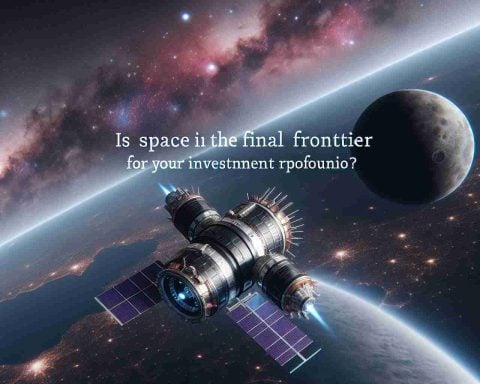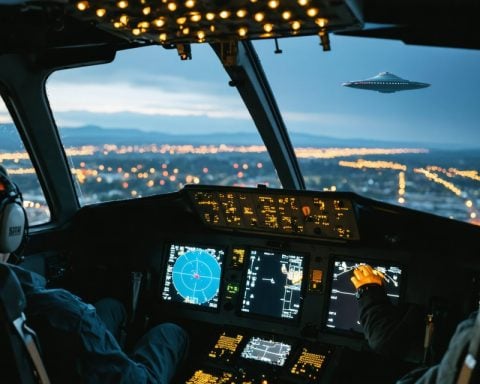In a recent press conference, Russian President Vladimir Putin addressed key global issues, notably Syria and Ukraine, while revealing that he had yet to meet with exiled Syrian leader Bashar al-Assad, despite previously granting him asylum. This revelation came during an extensive four-hour session attended by journalists and citizens voicing their concerns.
On the topic of Ukraine, Putin expressed a willingness for negotiations but remained vague about specifics, emphasizing the necessity for the opposing side to be equally prepared. He maintained that Russia would not enter talks unless Ukraine abandoned its NATO aspirations. Regarding military operations, Putin shared insights into the ongoing battles for regions like Kursk, admitting that military actions should have commenced earlier.
The economic situation was also under scrutiny; Putin acknowledged inflation levels surpassing nine percent. He assured citizens of anticipated economic growth, albeit modest in the coming year, attributing current inflation to the war effort.
Further discussions turned to Russia’s military presence in Syria, where Putin noted aspirations for humanitarian cooperation at military bases. He remarked on the shifting power dynamics in Syria, particularly with the Syrian rebel group’s advancement and reiterated Russia’s longstanding relations with various factions.
The conference highlighted Putin’s approach to complex geopolitical challenges and the intertwined nature of military actions with domestic economic realities.
Putin’s Press Conference: Insights, Implications, and Global Outlook
In a recent press conference held by Russian President Vladimir Putin, significant topics such as the ongoing situations in Ukraine and Syria dominated the agenda. The expansive four-hour session allowed for questions from journalists and citizens, providing a glimpse into the Russian leader’s perspectives on pressing global challenges.
Key Highlights from Putin’s Statements
Ukraine: Evolving Negotiations and Military Strategy
Putin’s remarks on Ukraine indicated a complex and cautious approach towards potential negotiations. He underlined the necessity for Ukraine to abandon its aspirations to join NATO before Russia would consider entering talks. This stance may impact future diplomatic efforts, positioning NATO as a central hurdle in the resolution of the conflict. Furthermore, he shared insights into military operations, particularly in regions like Kursk. His acknowledgment that military actions should have commenced earlier reflects ongoing strategic assessments within the Russian military command.
Economic Landscape: Inflation and Growth Predictions
Putin admitted that inflation levels have surged beyond nine percent, exacerbated by the war effort. Despite these challenges, he exuded a degree of optimism regarding economic growth. Analysts anticipate that the Russian economy will likely see only modest growth in the upcoming year, influenced by international sanctions and military expenditures. This scenario raises critical questions about Russia’s long-term economic stability amid global tensions.
Russia’s Role in Syria: Humanitarian Efforts and Military Dynamics
On the subject of Syria, Putin revealed his aspirations for humanitarian cooperation stemming from Russia’s military presence. He highlighted the intricate relations with various factions within Syria, particularly in light of the advancing rebel groups. The complexity of these alliances hints at a shifting paradigm in Syrian power dynamics, suggesting that future humanitarian efforts may face significant challenges due to the evolving conflict landscape.
Pros and Cons of Putin’s Current Strategies
Pros:
– Potential for Diplomatic Solutions: Putin’s openness to negotiations could lead to breakthrough moments in peace talks if seen as a sincere offer.
– Humanitarian Focus in Syria: Emphasizing humanitarian cooperation may improve Russia’s international image, potentially easing tensions.
Cons:
– Stalemate in Ukraine: The firm stance against NATO integration remains a significant barrier to peace, prolonging the conflict.
– Economic Strain: Persistent inflation and modest growth projections could lead to domestic unrest and dissatisfaction among the Russian populace.
Market Analysis: Implications for Global Politics
Putin’s statements not only reflect current Russian policies but may also signal trends in international relations. With Western sanctions tightening and military involvements extending, the strategies employed by both Russia and NATO will be critical in shaping geopolitical stability. Observers are closely watching how Russia’s domestic economic challenges interplay with its foreign policy maneuvers.
Predictions and Insights
Experts suggest that as the situation evolves, Russia may either recalibrate its military engagement or reinforce its positions in both Ukraine and Syria depending on domestic pressures and international responses. The outcomes of these deliberations could significantly impact global geopolitical equilibrium, trade, and security alliances.
Conclusion
Ultimately, President Putin’s press conference served as a platform for him to outline Russia’s current state in geopolitical affairs, providing crucial insights into the challenges and strategies facing the nation. Observers and analysts will continue to monitor the developments in Ukraine and Syria, assessing the potential ramifications for Russia and the world at large.
For more insights into global political dynamics, visit Reuters.


















